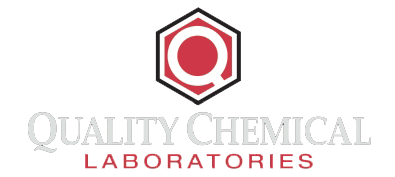Quality Assurance Policy
QCL commits to take the steps necessary to provide the highest quality of services to our clients, through continuous evaluation of all facets of the company and quality systems. A high quality of service will be provided with a minimum turn-around time, while complying with regulatory requirements.
Monitoring and Improvement
QCL has defined, planned, and implemented the monitoring, measurement, analysis and improvement processes needed to ensure quality within the entire company. These activities include internal audits, review of data, control of non-conforming data, and monitoring of events that could directly influence the quality of services.
Review of Data
All analytical laboratory data is reviewed by qualified personnel in order to ensure that the recorded data is accurately and thoroughly written in a manner that complies with Good Manufacturing Practice stated in the Code of Federal Regulations for compliance with the Food and Drug Administration.
Control of Non-Conforming Data (OOS)
In the case of non-conforming data (OOS), QCL will initiate an investigation. Investigations of analytical laboratory data must be performed in order to attempt to determine an assignable source for the OOS/aberrant result. Laboratory investigations must be initiated and client contacted within 24 hours of determining that a result is OOS/aberrant. If the client has no retest plan, QCL’s policy is to perform a 2 x 2 retest (duplicate preparations by both the initial analyst and a retest analyst). Investigations are tracked and trended to determine if repetitive events occur.
Reproducibility Requirements
Laboratory data guidelines for reproducibility are put in place to ensure that recorded data is accurate and precise to within the capabilities of the analytical method and technique. In general, duplicate or multiple sample readings/injections and preparations must meet the precision requirements of the method. SOP 482 “Laboratory Investigations” includes a comprehensive list detailing sample reproducibility requirements, as well as other specific instances that must be reviewed by laboratory management and investigated as either aberrant or out of specification data, for each laboratory technique.
Reporting of Data
Upon completion of analytical testing, QCL will issue a certificate of analysis in pdf format. The certificate of analysis will be immediately emailed to the client.Upon request, QCL will provide a hard copy by mail and include copies of raw data associated with the testing.
Internal Audits
At QCL, internal audits are conducted at planned intervals in order to maintain current Good Manufacturing Practices within QCL and ensure conformance to applicable regulatory requirements, including the FDA. In addition, internal audits are conducted to ascertain whether the quality system is effectively implemented and maintained and to identify opportunities for continual improvements. Results of internal audits are evaluated and reviewed to verify effectiveness. All major audit findings require management response in the form of a Corrective and Preventive Actions (CAPA) report. Quality Assurance will perform a daily audit of each analytical laboratory, including aspects of safety, to ensure the policies are being properly followed.
CAPA
QCL has designed a CAPA procedure to eliminate and prevent the cause of nonconformities. CAPAs may be the result of, but not limited to, a deviation, an audit finding, an investigation, or a client complaint. CAPAs are evaluated for effectiveness at planned intervals.
External Audits
QCL has written procedures for conducting biennial audits for GMP services supplied by other companies.
Change Control
Change management notifies the necessary personnel and clients of any system or equipment changes and provides proper documentation of the changes. Change request forms identify a necessary change for consideration and approval by laboratory management and quality assurance. Change management occurs whenever the need for a system or equipment change arises.
Zero Tolerance Policy
Analysts are expected to fully document all experiments and record true results, real-time. If it is determined that any analyst has falsified data, they will be permanently terminated from employment at Quality Chemical Laboratories.
Quality Policy Violations
When it is determined by management that there has been a violation of quality policies, the violation will be categorized and the consequence determined as outlined below:
Category of Violation – Consequence Examples
- Critical – Termination
Use eraser, write-up a project that was not performed, document something that did not happen, alter results to achieve passing result. - Major – Written warning and/or LWOP depending on severity of violation.
Writing results on sticky notes or paper towels, loose weigh tapes in projects. - Minor – Verbal Warning
Unlabeled glassware, not wearing lab coat.
QCL has implemented procedures, practices, and/or systems to maintain exceptional quality levels. Quality Assurance gives final approval of all controlled documents, and equipment qualification/calibration documents.
